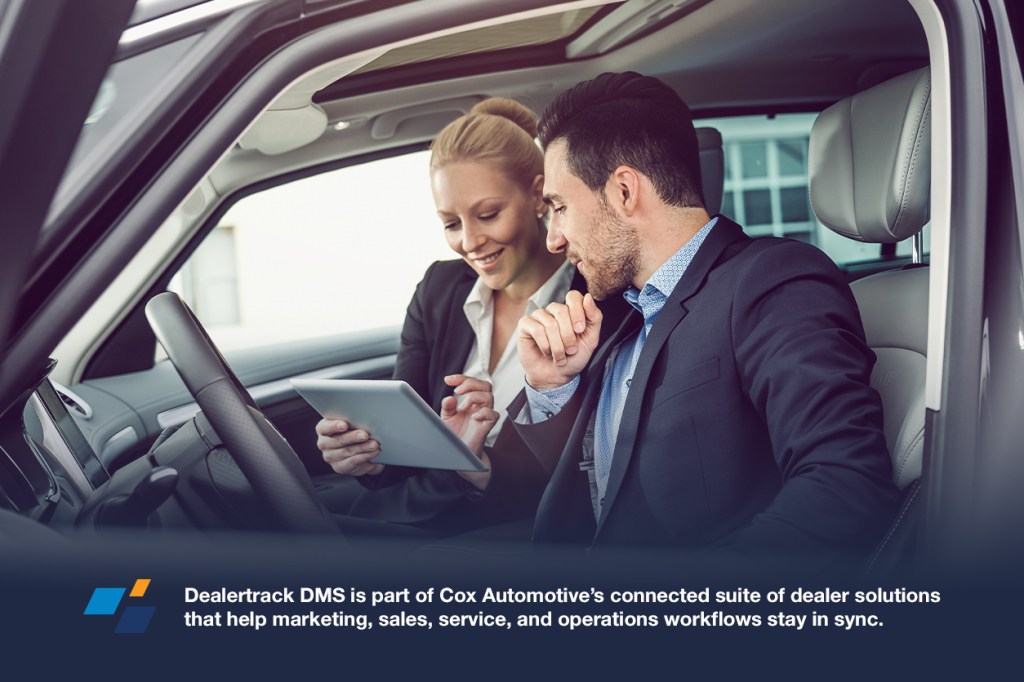Technology should propel your dealership forward, not hold it back. Too often, however, new tools are so complex, so hard to learn, and so slow to provide support that they actually do more harm than good. DMS platforms have earned this exact reputation—that of a technology tool that brings businesses down rather than bolstering their success.
For a tool so central to your dealership’s operation, that level of performance is entirely unacceptable. Dealertrack DMS is different, as demonstrated by the experiences of the dealers in this video, all of whom found Dealertrack to be easy to use and easy to learn—even for new hires and legacy teammates. And, because the company provides a level of product support that is unmatched in the industry, Dealertrack is as easy to work with as it is to operate.
Efficient Connections and Smooth Conversions
In today’s connected world, technologies must be evaluated for their ability to integrate with other tools. Switching to an open platform allows for natural connections and easy integrations with a wide variety of third-party platforms. When you work with an open and transparent DMS partner who works easily with the vendors of your choice, you can reduce the costly integration fees other providers charge. Still though, no matter how well it connects with your other tools, switching to a new DMS can be nerve-racking. Most of the dealers that switch to Dealertrack, find the transition to be smooth and surprisingly seamless.
Easy-to-Use Interface
Your DMS touches every department and every process within your dealership. So any effort spent working on – or working around – your DMS is energy that could have been used to build up your business. Dealertrack DMS is rated the #1 easiest-to-use dealer management system, so your team can put more of their energy and effort toward things that actually make a difference. Because it’s so easy to use, dealerships that make the switch reach full productivity faster. And, because new hires pick up the system so easily, you’ll never have to make a hiring or retention decision based on DMS experience again. Instead, all of your team members – from the newest to the longest-tenured – will be taking advantage of its powerful capabilities.
Technology holds the promise of productivity, powerful processes, and more profit—but not all tools actually deliver on that promise. Technologies that are hard to learn, hard to use, and hard to troubleshoot can actually hold your business back. As the easiest-to-learn, easiest-to-use DMS in the industry, Dealertrack DMS delivers on its promise to make your business better.













